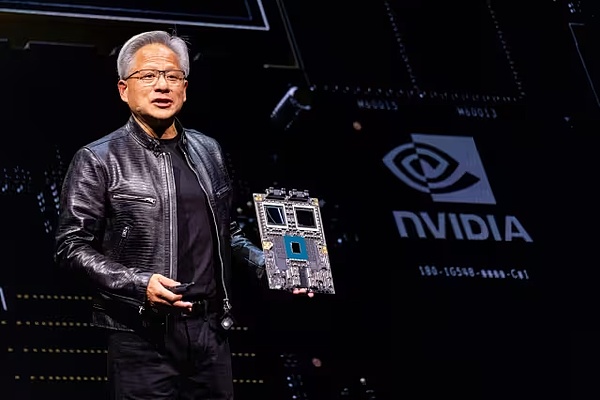The incoming Trump administration may take a different approach to AI regulation, so the sell-off in chip stocks may be temporary.
The Biden administration poured cold water on the U.S. stock "AI trade" in its last week before leaving office.
In new rules announced on Monday (January 13), the U.S. Department of Commerce set a cap on the number of advanced artificial intelligence chips that can be exported to certain countries, while also imposing additional licensing requirements for the research and development of artificial intelligence technology.
"This policy will help build a reliable technology ecosystem around the world, help the United States guard against national security risks related to artificial intelligence, and ensure that regulatory measures do not stifle innovation or America's technological leadership," said U.S. Commerce Secretary Gina Raimondo in a press release to the media.
Raimondo said that after the new restrictions are implemented, the United States' "adversaries" will not be able to obtain advanced artificial intelligence technology.

One important difference between the new rules issued on Monday and the previously announced restrictions is that they expand the export restrictions, licensing approvals or caps on AI chips to more than 120 countries outside of China.
Investors reacted strongly to the latest news, and chip stocks generally fell on Monday. In midday trading on Monday, Nvidia (NVDA) fell 2.6%, the Philadelphia Semiconductor Index (SOX) fell 0.8%, and AI server memory maker Micron Technology (MU) fell 4.6%.
However, the sell-off in chip stocks may be temporary as the incoming Trump administration may take a different approach to AI regulation.
Investors have already tempered expectations for Nvidia’s business prospects in China due to restrictions put in place at the end of 2023. AI technology has advanced since then, and the measures put in place at the end of 2023 mean Nvidia’s long-term revenue from China has been limited.
Nvidia called the Biden administration’s new policies “unprecedented” and pushed the U.S.’s AI leadership to the “dangerous brink.”
Nvidia's vice president of government affairs, Ned Finkle, said in a statement: "In its final days in office, the Biden administration is trying to undermine America's AI leadership with a 200-plus-page regulatory document that was drafted in secret and without proper legislative review. Such an overreach would impose bureaucratic control over the design and global marketing of America's leading semiconductors, computers, systems and even software."
Nvidia believes that the Biden administration has made it more difficult for companies in most countries and regions around the world to obtain Nvidia chips, opening the door for China to expand its market share in countries on the restricted list by the United States. Critics believe that this policy may eventually make China's AI chips the standard in these countries, thereby consolidating the position of China's AI chips.
The good news for Nvidia is that the new regulations will not take effect until after a 120-day public comment period. Judging from statements opposing Biden's previous AI executive order and opposing cumbersome AI regulations, the incoming Trump administration is likely to revoke or change the new rule in advance.
In October 2023, the Biden administration issued an executive order on AI, citing the Defense Production Act, requiring companies to report and send test results to the US government when developing more powerful versions of AI systems.
During his presidential campaign, Trump made the repeal of the AI executive order a core principle of his campaign, saying in his campaign platform: "Joe Biden's executive order is very dangerous, and we will repeal this executive order that hinders AI innovation."
The Trump transition team did not immediately comment on the latest AI restrictions.
To make policies more in line with the goals of the new administration, Trump may revise all AI chip policies.
When Trump nominated Doug Burgum as Secretary of the Interior in late November, he said: "We will win the battle for AI dominance that is a matter of American national security and prosperity." He also said that the United States will lead in innovation in AI technology by reducing regulation.
If the Trump administration relaxes restrictions on the construction of AI infrastructure and relaxes regulations on the development of nuclear reactors, Nvidia's business may be boosted, which are critical to providing enough energy for AI projects in the next 10 years.
 Kikyo
Kikyo








